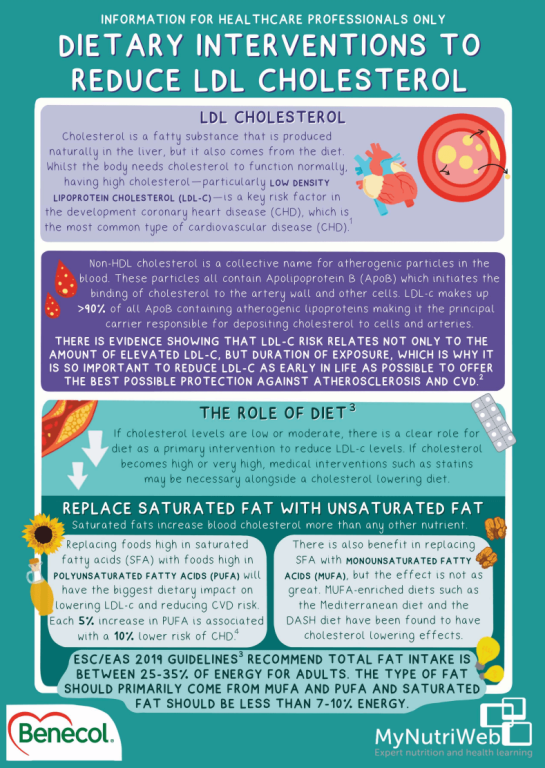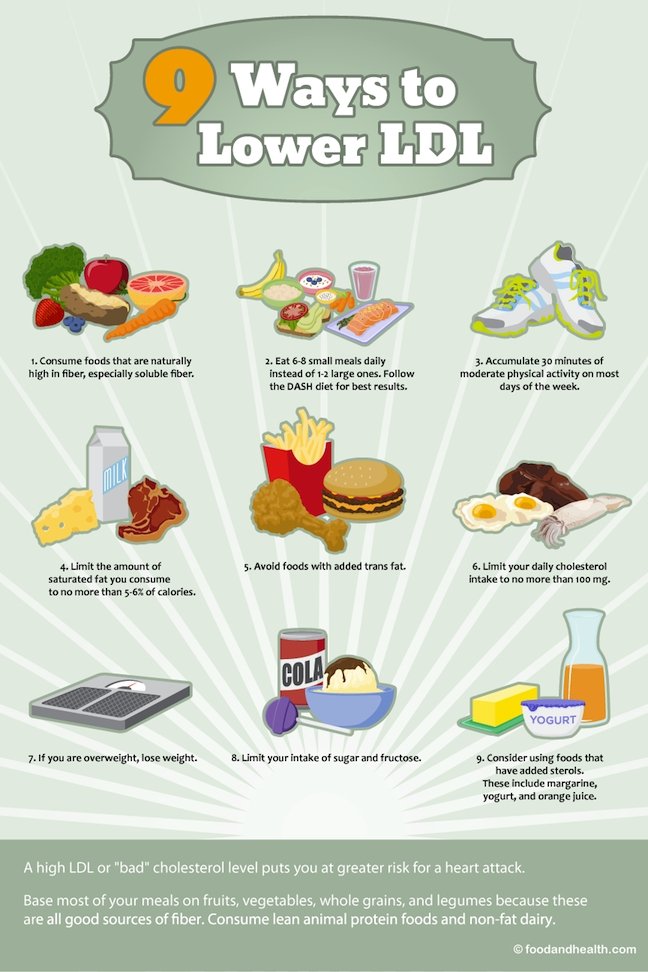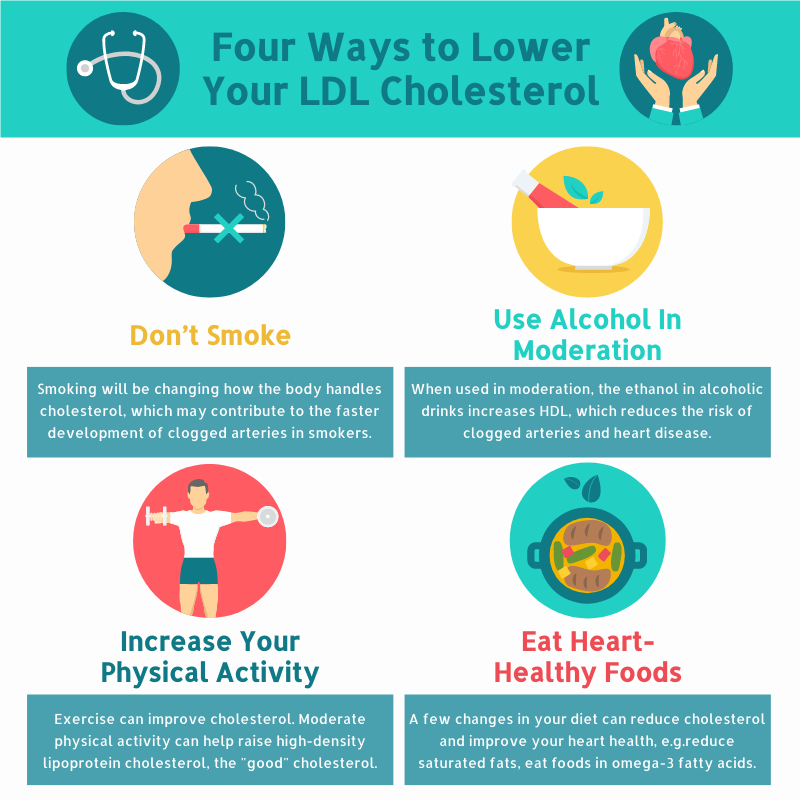Discover the surprising diet tweaks that can lower your LDL cholesterol levels naturally and improve your heart health fast!
Table of Contents
- Introduction: What is LDL Cholesterol?
- Go Nuts for Nuts
- Omega 3: Not Just in Fish
- Whole Grains for the Whole Heart
- The Magic of Magnesium
- The Sweet Truth About Dark Chocolate
- Apple Cider Vinegar for the Win
- Say Yes to Soy
- A Balancing Act: Managing Overall Diet
- Conclusion: Small Changes for a Happy Heart
- FAQs
Introduction: What is LDL Cholesterol?
Cholesterol is something most people have heard about, but do you know there are different types of cholesterol? LDL cholesterol is one of them, and it’s essential to understand why keeping it at a healthy level is important for your body.
Understanding Cholesterol
Cholesterol is a waxy substance that can be found in your blood. It plays a crucial role in building healthy cells and making hormones. There are two main types of cholesterol: LDL (low-density lipoprotein) and HDL (high-density lipoprotein).
Why Lower LDL Cholesterol
LDL cholesterol is often referred to as “bad” cholesterol because having high levels of it can lead to health problems. Too much LDL cholesterol can build up in the walls of your arteries, making them narrow and increasing the risk of heart disease and stroke. That’s why it’s essential to keep your LDL cholesterol in check by making healthy lifestyle choices like eating the right foods.
Eat More Fruits and Vegetables
When it comes to keeping your LDL cholesterol in check, eating more fruits and vegetables is a great place to start. These colorful foods are not only tasty but also packed with nutrients that can help lower your LDL levels.
Fiber is Your Friend
One of the reasons why fruits and vegetables are so good for your cholesterol is because they are rich in fiber. Fiber acts like a sponge in your digestive system, soaking up cholesterol and helping your body get rid of it. So, the more fiber you eat from fruits and veggies, the better it is for your LDL levels.
Go Nuts for Nuts
When it comes to lowering your LDL cholesterol, nuts are nature’s little powerhouses. You might be surprised to learn that even though they are high in fat, it’s the good kind of fat that can actually help your heart stay healthy. Let’s explore the benefits of these tiny treats!
The Power of Good Fats
Many nuts, like almonds, walnuts, and pistachios, are packed with monounsaturated and polyunsaturated fats. These fats are known to lower LDL cholesterol levels and reduce your risk of heart disease. By snacking on a handful of nuts instead of reaching for chips or cookies, you’re giving your body a boost of healthy fats that can benefit your heart in the long run.
Omega 3: Not Just in Fish
Omega 3 is a superhero when it comes to keeping your LDL cholesterol in check. But did you know that you don’t have to rely solely on fish to get your dose of this powerful nutrient? Let’s dive into the world of omega 3 and discover its plant-based sources.

Image courtesy of benecol.co.uk via Google Images
Plant-based Omega 3
Plant sources of omega 3 are perfect for those who aren’t big fans of fish or are following a vegetarian or vegan diet. Flaxseeds, chia seeds, walnuts, hemp seeds, and algae oil are all excellent sources of omega 3 fatty acids. These plant-based alternatives provide the same heart-healthy benefits as their fishy counterparts.
Whole Grains for the Whole Heart
Whole grains are a fantastic choice when it comes to taking care of your heart. Unlike refined grains that have been stripped of their nutrients, whole grains retain all the good stuff like fiber, vitamins, and minerals that can help lower your LDL cholesterol. Some key whole grains to include in your diet are:
1. Oats: Starting your day with a warm bowl of oatmeal can do wonders for your heart. Oats are rich in soluble fiber, which can help reduce LDL cholesterol levels.
2. Brown rice: Swap out white rice for whole-grain brown rice to enjoy the benefits of its fiber content and essential nutrients.
3. Quinoa: This super grain is not only delicious but also packed with protein, fiber, and magnesium, all of which contribute to a healthy heart.
4. Barley: Adding barley to soups or salads can boost your heart health due to its high fiber content and beta-glucans that lower cholesterol.
Incorporating these whole grains into your diet can be a simple yet effective way to improve your heart health and keep that LDL cholesterol in check.
The Magic of Magnesium
Magnesium is like a secret superhero that can help you manage your cholesterol levels. It’s a mineral that your body needs to stay healthy, and one of its amazing powers is lowering your LDL cholesterol, which is the bad kind of cholesterol.

Image courtesy of nutritioneducationstore.com · In stock via Google Images
Foods High in Magnesium
Wondering where you can find this magical mineral? Well, there are plenty of delicious foods that are packed with magnesium. You can try eating nuts like almonds and cashews, beans and lentils, whole grains like brown rice and quinoa, and even dark leafy greens like spinach and kale. These foods are not only tasty but also great for keeping your cholesterol in check.
The Sweet Truth About Dark Chocolate
Dark chocolate isn’t just a tasty treat; it can actually be good for your health, especially when it comes to managing your cholesterol levels. So, let’s dive into the delicious details of how this sweet treat can benefit your body!
Why Dark Chocolate Helps
One of the reasons dark chocolate is good for your cholesterol is because it is packed with antioxidants. These antioxidants can help lower the levels of LDL cholesterol in your body, which is the “bad” cholesterol that can clog up your arteries and lead to heart problems.
Dark chocolate also contains flavonoids, which are compounds that have been shown to improve heart health. These flavonoids can help reduce inflammation in the body and improve the function of your blood vessels, which can lead to better circulation and lower cholesterol levels.
When choosing dark chocolate, make sure to look for options that have a higher cocoa content. The higher the cocoa content, the more health benefits the chocolate will have. Aim for dark chocolate that has at least 70% cocoa content to reap the most benefits for your heart.
By enjoying dark chocolate in moderation as part of a balanced diet, you can satisfy your sweet tooth and support your heart health at the same time. So, go ahead and indulge in a piece of dark chocolate guilt-free!
Apple Cider Vinegar for the Win
Apple cider vinegar may seem like an odd choice for improving your health, but it actually has some amazing benefits, especially when it comes to managing your LDL cholesterol levels. Here’s how this sour-sweet liquid can make a difference in your diet and help you on your way to a healthier heart.

Image courtesy of www.nhlbi.nih.gov via Google Images
Ways to Enjoy Apple Cider Vinegar
There are several fun and easy ways to incorporate apple cider vinegar into your daily routine. One popular method is to mix a tablespoon of apple cider vinegar with a glass of water and drink it before meals. This simple concoction can help kickstart your digestion and may have positive effects on your cholesterol levels over time. You can also use apple cider vinegar as a delicious salad dressing by mixing it with a bit of olive oil and herbs.
Some people even enjoy drinking a shot of apple cider vinegar mixed with honey in the morning as a quick health boost. However you choose to consume it, just remember that moderation is key, as too much acidity from vinegar can be harsh on your stomach.
Say Yes to Soy
When it comes to reducing LDL cholesterol, soy can be your new best friend. Soy-based foods have some amazing benefits that can help keep your cholesterol levels in check.
Soy Products To Try
There are plenty of delicious soy products that you can incorporate into your diet to help lower your LDL cholesterol. Here are a few options you might want to give a try:
| Diet Change | Benefit |
|---|---|
| Eat more fruits and vegetables | Rich in fiber and antioxidants which help lower LDL cholesterol |
| Choose whole grains | High in fiber and nutrients that can reduce LDL cholesterol levels |
| Include nuts in your diet | Good source of healthy fats that can improve cholesterol levels |
| Limit saturated fats | Reducing intake of saturated fats can help lower LDL cholesterol |
| Opt for lean protein sources | Reduce intake of cholesterol-raising saturated fats |
| Use healthier cooking oils | Choosing oils like olive oil can improve cholesterol levels |
| Reduce sugar intake | Excess sugar consumption can lead to higher LDL cholesterol levels |
| Eat more fatty fish | Rich in omega-3 fatty acids that can lower LDL cholesterol |
| Add plant sterols to your diet | May help reduce LDL cholesterol levels |
| Stay hydrated | Drinking water can aid in digestion and overall heart health |
- Tofu: This versatile food can be added to stir-fries, salads, or even blended into smoothies for a protein boost.
- Edamame: These young soybeans make a tasty and nutritious snack. Just boil or steam them, sprinkle with a little salt, and enjoy!
- Soy milk: A great dairy alternative, soy milk can be used in place of regular cow’s milk in cereals, coffee, or cooking.
- Soy yogurt: Creamy and delicious, soy yogurt is a tasty way to add probiotics to your diet while enjoying the benefits of soy.
Incorporating these soy products into your meals can not only help you manage your cholesterol but also add some variety and nutrients to your diet. So why not give soy a chance and say yes to this cholesterol-friendly ingredient?
What are Saturated Fats
Saturated fats are a type of fat found in many foods we eat. They are usually solid at room temperature and are commonly found in animal products like butter, cheese, and fatty meats. These fats can raise your LDL cholesterol and increase your risk of heart disease.
Finding Alternatives
Reducing saturated fats in your diet doesn’t mean giving up on tasty foods. You can make simple swaps to cut back on these unhealthy fats and still enjoy delicious meals. Try using olive oil or avocado instead of butter when cooking. Switching to lean meats like chicken or fish can also help lower your intake of saturated fats.
A Balancing Act: Managing Overall Diet
When it comes to keeping your LDL cholesterol in check, it’s not just about individual food choices. Managing your overall diet plays a crucial role in maintaining a healthy heart and managing high blood pressure and cholesterol levels. Here are some tips on how to strike a balance in your meals to promote heart health.

Image courtesy of online.visual-paradigm.com via Google Images
Planning Your Meals
One of the key aspects of maintaining a balanced diet is planning your meals ahead of time. This involves including a variety of foods from different food groups in each meal. Make sure to include plenty of fruits, vegetables, whole grains, lean proteins, and healthy fats in your diet. This way, you can ensure that you’re getting all the essential nutrients your body needs while keeping your LDL cholesterol levels in check.
Try to limit your intake of processed foods, sugary drinks, and foods high in saturated fats. These can contribute to high cholesterol levels and increase your risk of heart disease. Instead, opt for whole, nutrient-dense foods that will benefit your overall health.
Remember to stay hydrated by drinking plenty of water throughout the day. Water helps your body function properly and can aid in digestion and nutrient absorption. It’s a simple yet important way to support your overall health and well-being.
Conclusion: Small Changes for a Happy Heart
Lowering your LDL cholesterol doesn’t have to be daunting. By making small changes to your diet and lifestyle, you can take big steps towards a healthier heart. Remember, every little adjustment you make can add up to significant benefits for your overall well-being.
Start with Simple Steps
Incorporating more fruits and vegetables into your meals is an easy way to boost your heart health. Their high fiber content not only helps lower LDL cholesterol but also keeps your digestive system happy and healthy.
Choose Wisely When Snacking
When you’re feeling hungry between meals, reach for a handful of nuts instead of processed snacks. Nuts contain good fats that can actually help lower your LDL cholesterol levels and support heart health.
Explore Omega 3 Beyond Fish
If you’re not a fan of fish, don’t worry! You can still get your essential omega 3 fatty acids from plant-based sources like flaxseeds, chia seeds, and walnuts. These fats are vital for maintaining healthy cholesterol levels.
Be Grainsmart
Swap out refined grains for whole grains like quinoa, brown rice, and oats. These wholesome choices provide essential nutrients and fiber that can aid in lowering LDL cholesterol and promoting a healthy heart.
Magnesium Marvels
Increasing your intake of magnesium-rich foods such as spinach, almonds, and avocados can not only benefit your cholesterol levels but also support muscle and nerve function. Don’t overlook the power of this important mineral!
Indulge in Dark Delights
Who knew that indulging in a square of dark chocolate could be good for your heart? Dark chocolate contains antioxidants that can help reduce LDL cholesterol levels and improve overall heart health. So go ahead and enjoy in moderation!
Sip on Apple Cider Vinegar
Adding apple cider vinegar to your meals or drinks might not only add a tangy twist but also provide benefits for your cholesterol levels. Get creative with how you incorporate this versatile ingredient into your diet for a heart-healthy boost.
By making these simple changes and staying committed to a balanced diet, you can take important strides towards caring for your heart. Remember, it’s never too late to start prioritizing your health and well-being. Your heart will thank you for it!
FAQs
Answer common questions the reader might have about lowering LDL cholesterol through diet.
What is the fastest way to lower my LDL cholesterol?
The fastest way to lower your LDL cholesterol is to make healthy diet changes. Focus on eating more fruits and vegetables, whole grains, nuts, and foods high in omega 3 fatty acids. Avoid saturated fats and processed foods, and limit your intake of sugary treats. Regular exercise can also help in lowering LDL cholesterol levels.
Are there any foods I should avoid to lower my LDL cholesterol?
To lower your LDL cholesterol, it’s important to avoid foods high in saturated fats and trans fats. These include fried foods, fast food, processed snacks, and fatty cuts of meat. Limit your intake of full-fat dairy products and opt for lean protein sources like fish, poultry, and plant-based proteins instead.
Can exercise help lower my LDL cholesterol?
Yes, exercise can help lower LDL cholesterol levels. Physical activity boosts HDL cholesterol, the good kind of cholesterol that helps remove LDL cholesterol from your bloodstream. Aim for at least 30 minutes of moderate to vigorous exercise most days of the week. Activities like brisk walking, swimming, jogging, biking, and dancing are all great choices to help lower LDL cholesterol.





